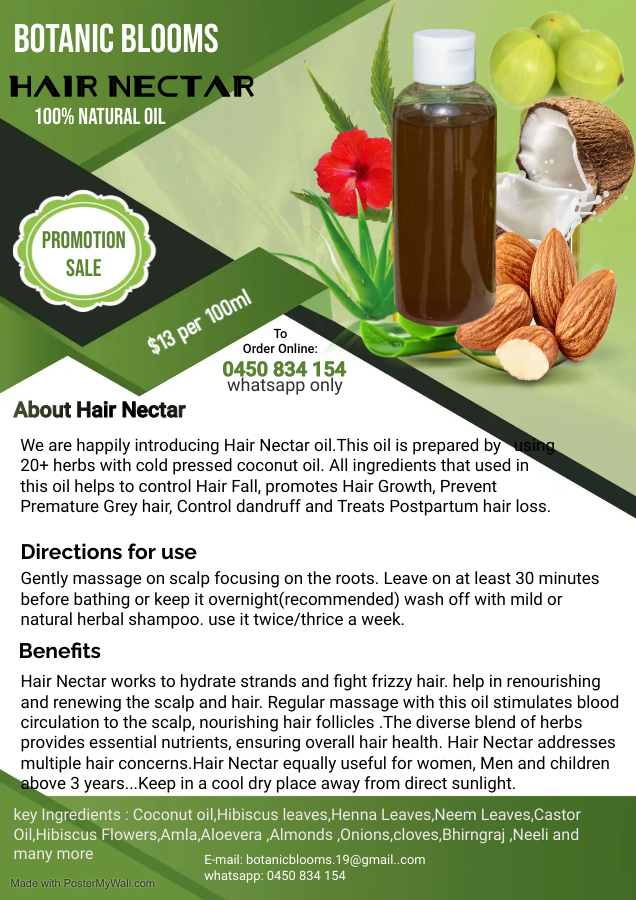Hair Oil for Growth: Separating Fact from Fiction
The quest for long, luscious locks has led many people to explore various hair care rituals, including the use of hair oils. Promises of faster hair growth and improved hair health are abundant, but it’s essential to separate fact from fiction.
Does hair oil really work for growth, or is it just another beauty myth? In this comprehensive blog post, we’ll dive deep into the science, history, and effectiveness of hair oils to uncover the truth.
The Science Behind Hair Growth
Before we address the efficacy of hair oils, let’s understand the science of hair growth:
- Hair Growth Cycle: Hair growth occurs in cycles, including the anagen (growth), catagen (transition), and telogen (rest) phases. The length and health of your hair are influenced by these cycles.
- Follicle Health: Hair grows from hair follicles located in the scalp. The health of these follicles plays a crucial role in determining hair growth.
- Nutrient Supply: Proper hair growth requires an adequate supply of nutrients like proteins, vitamins, and minerals to nourish the hair follicles.
The Role of Hair Oils
Hair oils have been used for centuries in various cultures for their potential benefits. Here are some ways in which hair oils can contribute to hair growth:
Here is the best hair oil for hair growth luckily available in Melbourne only.

1. Scalp Health
Fact: A healthy scalp is crucial for hair growth. Some hair oils, like coconut oil and jojoba oil, have moisturizing properties that can help maintain scalp health by preventing dryness and flakiness. A well-hydrated scalp can promote hair growth.
2. Blood Circulation
Fact: Massaging the scalp with hair oil can improve blood circulation. Increased blood flow to the hair follicles can provide essential nutrients and oxygen, potentially encouraging hair growth.
3. Strengthening Hair
Fact: Certain hair oils, like argan oil and castor oil, are rich in nutrients that can strengthen hair strands. Stronger hair is less likely to break, which can make it appear longer over time.
4. Moisturizing
Fact: Properly moisturized hair is less prone to breakage and split ends. Hair oils can lock in moisture, reducing the risk of damage that may hinder hair growth.
5. Damage Prevention
Fact: Hair oils can act as a protective barrier against environmental factors like pollution and UV rays. By shielding your hair, they can help prevent damage and promote overall hair health.
The Limitations of Hair Oils
While hair oils can offer several benefits for hair health, they are not a magical solution for instant hair growth. Here are some important considerations:
1. Genetics
Fact: Genetics play a significant role in determining the length and thickness of your hair. Hair oils can optimize your genetic potential, but they cannot change your underlying genetics.
2. Holistic Approach
Fact: Hair care is multifaceted. For optimal results, it’s crucial to adopt a holistic approach that includes a balanced diet, proper hydration, gentle hair care practices, and overall good health.
3. Individual Variation
Fact: Not all hair types respond the same way to hair oils. What works for one person may not work as effectively for another. It’s essential to find the right hair oil and routine that suits your specific hair needs.
Conclusion
So, does hair oil really work for growth? The answer is a resounding “yes” when used as part of a holistic approach to hair care. Hair oils can contribute to a healthy scalp, improved blood circulation, and hair strengthening, all of which are essential for optimal hair growth. However, they are not a magical solution that guarantees instant or miraculous results. Consistency, patience, and a comprehensive hair care routine are key to achieving the long, healthy locks you desire. Ultimately, the effectiveness of hair oils in promoting growth will vary from person to person, but they can undoubtedly play a positive role in your hair care journey.



